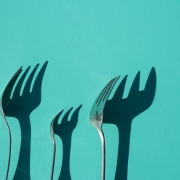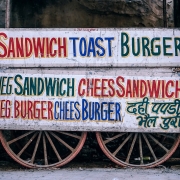Diet Confusion and Why We’re Getting Fatter
A few years back I was working on a certification as a Holistic Nutrition Consultant. I read dozens and dozens of books (probably closer to 100) about nutrition. I read a book or two on every diet out there and even practiced being a Vegan for 6 months. After reading more books, I tried Keto. I read books about Paleo, The Zone, the South-Beach Diet, the Aztec Diet, the Whole Food Diet and many more. Currently, I’m reading the Whole30 Diet.
Here is what they all share in common:
1. Stop eating sugar.
This means, stop eating sweets and it means stop eating processed foods that have sugar added to them. We eat way, way, way too much sugar. It’s killing us.
2. Stop eating refined carbohydrates.
Really, all processed food. Of course, this includes sugar, but it also includes the things that we eat that act like sugar, high glycemic and high glycemic load foods. Many starches and grains fit into this category, like breads and pastas. This also includes packaged foods that have a lot of hidden sugars in them.
3. Eat lots of fruits and vegetables.
Most of us do not eat enough fruits and vegetables, and most of our micronutrients come from them. With the exception of Paleo, not one diet said, “Stay away from Fruits and Vegetables.” Paleo says to restrict the amount of fruit that you eat.
4. Eat animal and plant protein.
With the exception of Vegan and Vegetarian diets, all other diets allow animal protein, and most allow dairy and eggs. Even the Whole Food Plant-Based diet, supported by the founder of Whole Foods, John Mackey, allows for animal protein (10% of your diet). There are numerous new books that advocate not eating animal protein, but none have the evidence to support that restriction.
5. Every book I read supported and encouraged exercise, both aerobic and resistance training.
Some supported a type of fasting. It’s interesting that there is evidence for the idea that exercise and fasting lead to insulin sensitivity (the opposite of insulin resistance -Type II diabetes). So, eating right and exercise protect from chronic disease.
6. All of the diets advocate for a dietary-lifestyle-change and insisted that weight loss was not the goal of their plan.
They argued rather, that their diets were intended as a way of life. After all, we develop patterns and habits that perpetuate our health problems.
7. None of the books provided a plan for sustaining the lifestyle that they were promoting.
“The Beck Diet Solution, by Judith Beck” was the only book that provided a 30-day plan for maintaining your lifestyle changes. Beck utilized Cognitive Behaviors Therapy in her book to address our sabotaging thoughts.
8. If you’re over 40, eat more protein.
I recently listened to a series of lectures on “Improving Body Composition.” The takeaway from these lectures was that as we age, we need to eat plenty of protein, possibly twice the amount previously told. This makes sense! We begin losing muscle around age forty and therefore need to eat plenty of protein to maintain our muscle mass.
9. If you’re eating right, you probably don’t need a supplement.
On a recent podcast by Dr. Rhonda Patrick, she recommended taking one as insurance. I think it’s a good idea.
10. The best books strongly encouraged people to enjoy the food they ate.
I think it’s a tragedy that food has become such a villain. I don’t think they meant that people should enjoy eating junk food and enjoy overeating. We stress out about food all the time. It’s nice to slow down and, in a mindful way, consider the wonder and beauty of food. Relax. Eat. Relax.
Nutritional and Medical Disclaimer for True North Counseling, LLC
In viewing this website (and blog), it is assumed that you understand and acknowledge that the services and information, provided by True North Counseling, LLC may involve recommendation to improve your general health, fitness and well-being, including nutrition/diet advice and suggestions for physical activity. In accepting this information, understand that it is under your best discretion to be respectful to your body when engaging in physical activity and/or changing dietary habits. It is recommended to consult with your primary physician before starting any new/recent exercise or eating routine and to get annual check-ups to assess current health and fitness status. Do not overlook the importance of having a team-approach when health is involved. Regular visits with both your physician and registered dietitian will allow you to create the best possible, balanced approach in meeting health and performance/fitness goals.












